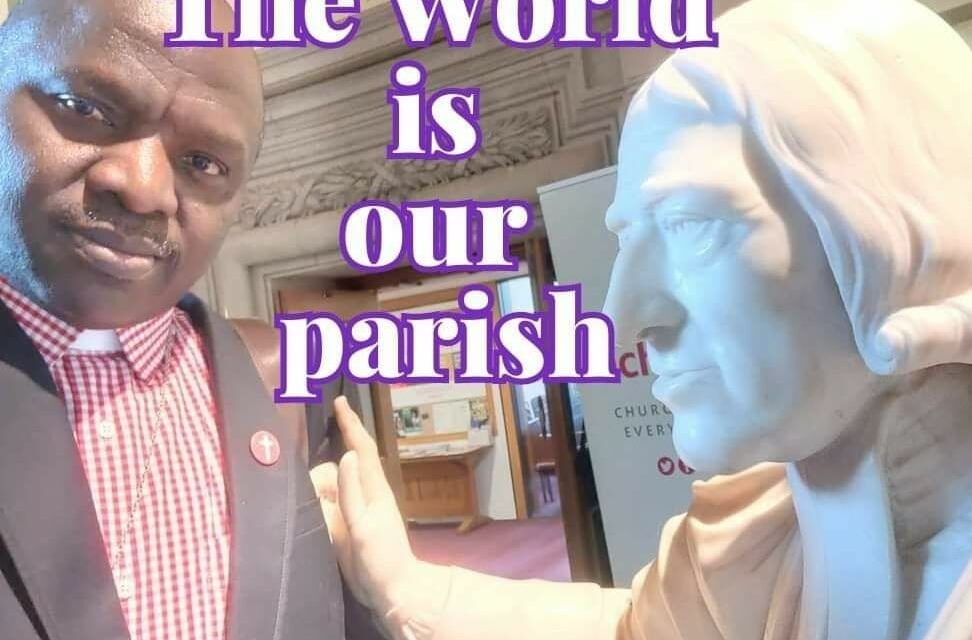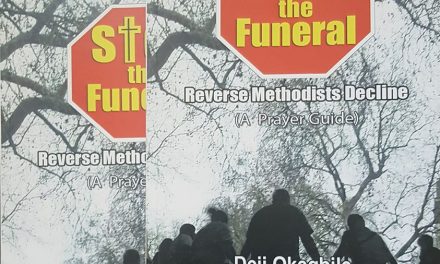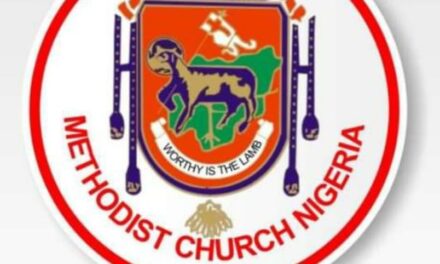God loves you: therefore, love and obey him. Christ died for you; therefore, die to sin. Christ is risen, therefore, rise in the image of God. Christ liveth evermore: therefore, live to God till you live with him in glory. So we preached; so you believed. This is the scriptural way, the Methodist way, the true way – John Wesley (1703-1791)
The birth of John Wesley on this day, June 17, 1703, 320 years ago, summons us to re-engage evangelism in the ‘scriptural way, the Methodist way, the True way. The declining and disturbing lack of new converts to the faith in many corners of Methodism is no longer strange as ‘the denomination is on life support’ (Chris Ritter). Church and revival history warns us that church decline is a habit more difficult to break. Wesley’s birthday reminds us of the need to re-engage evangelism for Methodism to come alive in an increasingly secular church in a secular age. Any fresh expression of Methodism that does not offer people Christ amounts to arms of flesh capable of burying the denomination.
Wesley’s letter to London banker and Methodist benefactor Ebenezer Blackwell on December 20, 1751, provides a Wesleyan understanding of the Gospel with missional potential for the rebirth of Methodism today. Wesley published the letter in The Arminian Magazine in 1779 titled “A Letter on Preaching Christ.” This letter provides a ‘concise and yet comprehensive treatise on the content of early Methodist evangelistic preaching.’
Wesley and the early Methodists were concerned about getting heaven into people and not just getting the world into people as it is today. Wesley told Blackwell the Methodist evangelistic message, “This is the Scriptural way, the Methodist way, the true way. God grant that we may never turn therefrom, to the right hand or the left!”
Today, some of our vague debates and ‘discussions about prevenient grace, the “order of salvation,” or even the so-called quadrilateral, or maybe even something about Christian perfection’ not only get the world into the church and people, but average Methodist also especially preachers do not believe or ‘articulate the gospel with that Wesleyan accent.’ In his response to Blackwell about the content of Methodist evangelistic preaching, Wesley offered a mix of Gospel and law. Wesley wrote, ‘I mean by preaching the Gospel, preaching the love of God to sinners, preaching the life, death, resurrection, and intercession of Christ, with all the blessings which are freely given to true believers. By preaching the law, I mean explaining and enforcing the commands of Christ, briefly comprised in the Sermon on the Mount.’
The Methodist model of evangelism “begets faith” and “sustains and increases spiritual life in true believers.” The reflection is that ‘mixing gospel and law convicts’ people of their sin and their need for salvation but also gives them the pathway to follow in being shaped to live in the image of Christ in this life.’ Wesley summarizes this evangelistic plan upon which “all Methodists first set out” in these four short statements: ‘God loves you; therefore, love and obey him. Christ died for you; therefore, die to sin. Christ is risen; therefore, rise in the image of God. Christ liveth evermore; therefore, live to God until you live with him in glory.’
In Wesley’s words, “love ruling the whole life, animating all our tempers and passions, directing all our thoughts, words, and actions” (Sermon 84: “The Important Question”). Wesleyan theology of the Cross, “Christ died for you; therefore, die to sin,” stresses that ‘justification releases us from the power of sin and guilt. God is saying to someone, you can be free of slavery to sin right now. Wesley’s theology is an evangelistic model focusing beyond believers rising at death to heaven, but we can be raised to new life in the present because “Christ is risen; therefore, rise in the image of God.”
Wesley’s theology tells us that Jesus Christ offers us abundant life in the kingdom of God because “Christ liveth evermore; therefore, live to God until you live with Him in glory.” Wesley’s evangelistic message is about our missional identity breaking into the present world and living in a community of faith without compromise.
On this particular day, the 320th birthday of John Wesley, let us reflect on our missional identity as Christians in the Methodist tradition. Let us ask ‘the loving Spirit to transform us not through nostalgia but through the new birth. Let us join in praising our Triune God, the same yesterday, today, and forever!’ Let us pray and ask Almighty God, Who raised John and Charles Wesley, to proclaim anew the gift of redemption and the life of holiness. Let us pray, O Lord’ pour out your Spirit, and revive your work among us, inspired by the same faith and upheld by the same grace in word and sacrament, all your children, and we may be made one in the unity of your church on earth, even as in heaven we are made one in you through Jesus Christ, our Lord. Amen.
God of mercy, who inspired John and Charles Wesley with zeal for your Gospel: grant that all your people may boldly proclaim your word and rejoice in singing your praises; through Jesus Christ, our Lord. Amen. (The Methodist Worship Book, 1999, 562, 563).











Recent Comments